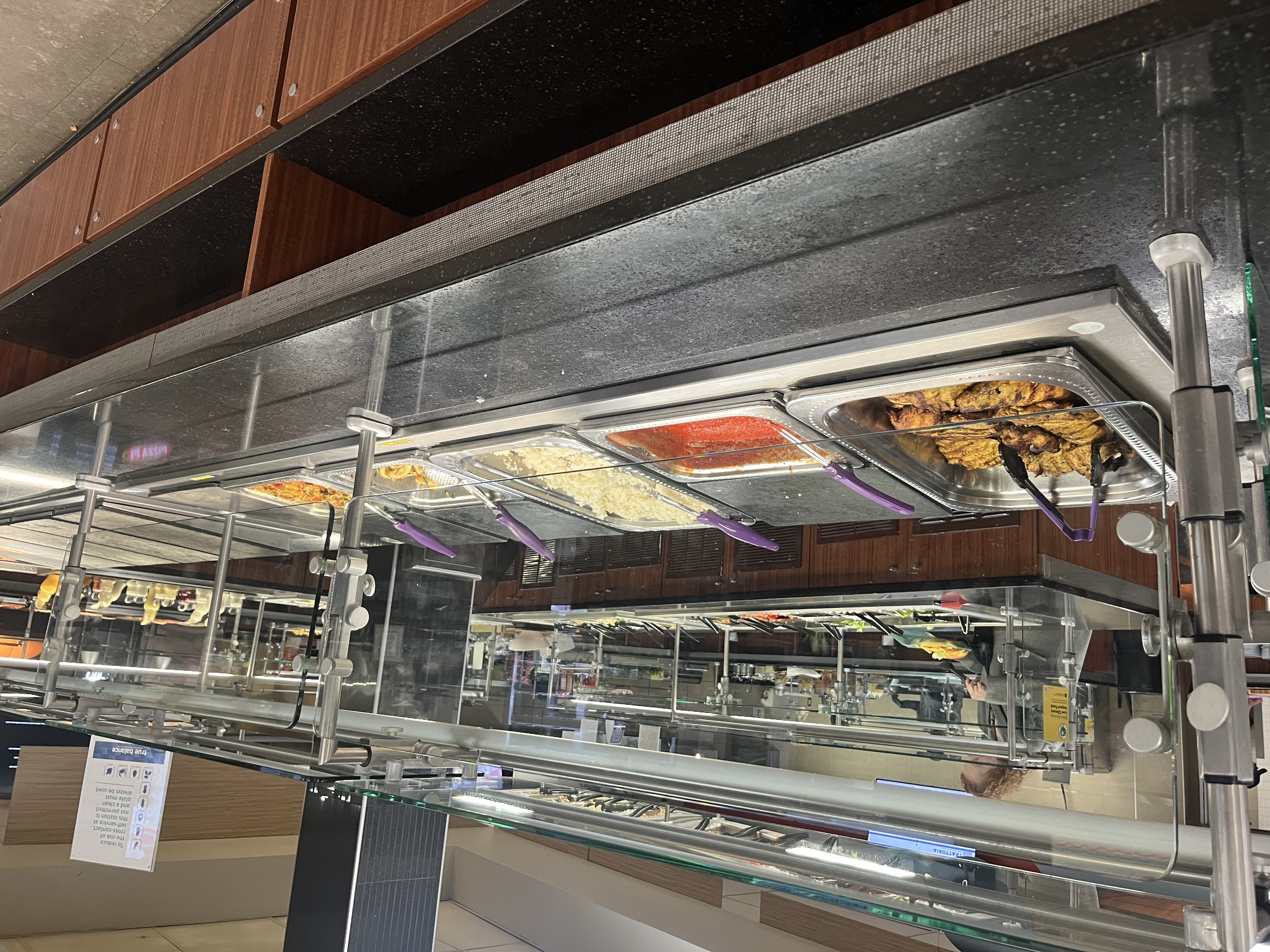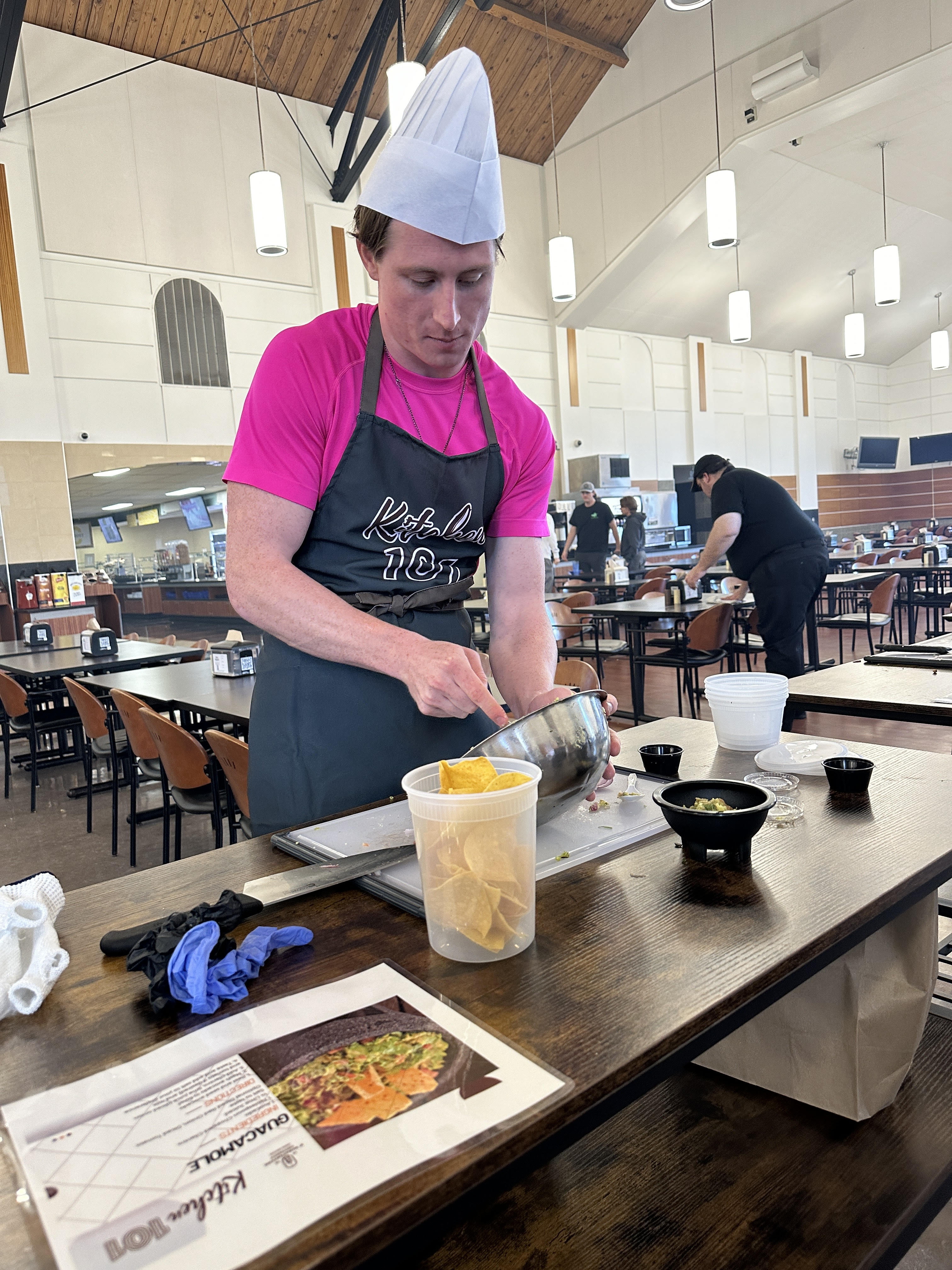BY JONNY WALKER, STAFF WRITER
She wiped a bead of sweat from her rosy cheeks as she stepped into the Hickey Dining Hall, St. Bonaventure University’s principal dining facility. Faith Pingie, a sophomore education major, wanted to refuel after an intense workout in the campus fitness center. Pingie took two laps around the Hickey’s seven buffet-style stations.
Her eyes wandered warily from hamburgers and hot dogs to what she described as burnt chicken and undercooked rice. Her brown ponytail swung back and forth as she roamed.
After five minutes of searching, Pingie sat. A slice of pizza stared back at her from her otherwise empty plate.
“I was hoping for something to help my body recover — maybe some protein and carbs — like chicken and rice,” said Pingie. “Instead, I had to settle for junk food.”
Bonaventure requires most students living on campus to purchase a full meal plan, starting at $3,155 per semester for the 2021-2022 academic year. All full meal plans include unlimited access to the Hickey, which offers cafeteria-style dining.
Students said the meal-plan requirement meant university officials had an obligation to ensure campus dining options accommodated all diets. A campus nutritionist said health-conscious students in particular decry Bonaventure’s dining options. University officials called healthy options widely available.
Alexis Switzer, a sophomore women’s rugby player, said she always knew the type of food she wanted to eat before visiting the Hickey. The facility’s lack of healthy, attractive options forced her to deviate from her plan two-thirds of the time, Switzer said.
“I would say I’m pretty health conscious,” said Switzer. “I’m just looking for things that have nutritional value, like fruits, vegetables, lean meats — that kind of thing. It’s usually hit or miss whether the Hickey has something simple and clean.”
Nicole Clark, who oversees dining services at Bonaventure, said her staff accommodates health-conscious students.
“For students who make meal choices based on nutritional content, we encourage them to first reference the dining-services website,” said Clark. “All dining locations on campus serve a variety of healthy options daily.”
Marcy Higgs, the nutritionist who works closely with Bonaventure’s student athletes, said students and administrators have increasingly and ill-advisedly turned to the internet for nutritional advice. That makes correctly defining “healthy” essential, she said.
“Variety within each food group, each food group represented — that’s an overall healthy diet,” said Higgs. “A healthy diet is whole grains … some kind of dairy … lots of variety of fruits and vegetables … lean meats like chicken, turkey and fish … and heart-healthy fats.”
Some students select food without considering nutritional value.
“I just want something that tastes good,” said Jacob Palmer, a sophomore accounting major. “I feel like for the price we’re paying, we could pretty much eat out at a restaurant every day. So we might as well have something that’s of comparable quality.”
In spring 2021, university administrators and student government representatives jointly formed a food committee. The committee aimed to address student and parent complaints primarily made on social media.
Connor Raine, a sophomore class representative and food committee member, said he wishes more unhappy students would complain directly to a committee member.
“If students feel that the food is unhealthy, the students in the committee are more than more than happy to speak up about that,” said Raine. “As far as the menu, it’s all student driven. If there’s a problem, they [university administrators] have always said they have open-door policies, and they’re more than happy to address the situation before it goes on stuff like Yik Yak and Facebook.”
Students said they believe small changes could greatly impact their satisfaction with campus dining services.
“Like at the salad bar, they could just chop their vegetables a little more, instead of just leaving them in like giant strips,” said Switzer. “That would make it ten times better.”
Higgs said she has worked in many places during her 23-year career. Somehow, she always gets stuck in the basement. Her office’s location represents the minimal level of importance people give nutrition, she said.
Nevertheless, Higgs encourages everyone to stop by to chat. A table she stockpiles with healthy snacks greets visitors just through her office door.
“If I ran the world, no one would have unhealthy options on campus, but I’m outvoted,” Higgs said jokingly. “It would be lovely to see if we can make a movement on campus to be more health conscious. I think people would be amazed at how much better they would feel if they had the right balance of carbs, protein and fats — nothing processed and all healthy stuff.”
walkerjc20@bonaventure.edu






